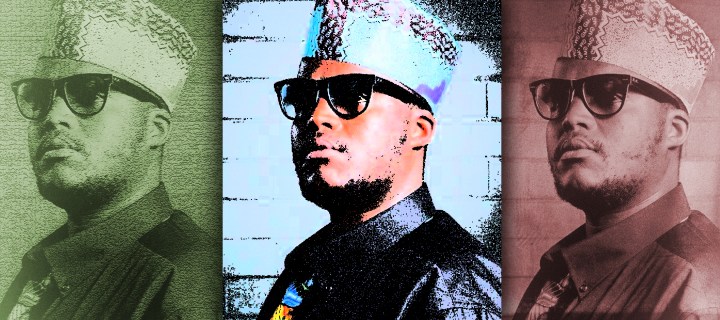OP-ED
Somebody’s pain is not your headline — stop making a fetish of depression

While Hip Hop Pantsula’s family has tried to shift the conversation, his pain has still been reduced to bite-sized quotes that ignore the complexities of an ‘invisible illness’.
Note: This article deals with subjects such as suicide and depression. If you are in distress, the following helplines are available in South Africa:
- Lifeline – 0861 322 322
- Suicide Crisis line – 0800 567 567
- SADAG Mental Health line – 011 234 4837
Here we are again. Another opportunity to shift the mental health narrative, completely wasted. In the week since rapper Hip Hop Pantsula’s death, we’ve lost again.
We’ve seen a publication publish a picture of gallows alongside its story, we’ve seen somebody’s pain reduced to quotes, and we’ve had the method sniffed out and detailed for no apparent reason. This just a few weeks after the official government Twitter account used an image of a similar nature for their mental health day message.
It’s not good enough.
The Tsambo family deserves enormous credit for attempting to shift the conversation to talking about depression. But even those attempts have been hijacked and turned into cheap headlines.
HHP was remarkably open about his battles with depression. In the context of South African society, where mental illness is still considered a taboo topic, his strength and honesty is refreshing.
But turning his pain and his quotes from years ago into quick soundbites is doing a disservice to his bravery. And it’s a disservice to every single person who has to fight against it.
The conversation around depression and other mental health battles needs to change, but soundbites isn’t the right way to do it.
We need to ask questions about the stigma and the role we are all playing in enforcing that stigma. We need to ask why our access to care remains so limited. We need to ask why things like the Esidimeni scandal still happen.
Somebody’s torment should not be a punchline quote.
We need to interrogate what pushes us to the point of going against every single instinct in our existence that drives us to stay alive. And we need to talk.
We need to talk. For HHP. For Robert Enke. For Gary Speed. For Chester Bennington. For Robin Williams. For Kate Spade. For Anthony Bourdain.
For the millions of names you’ll never hear. We need to talk. And we need to act.
The day after HHP’s death, “what is depression” was trending on Google search. That in itself is a damning indictment of how we have failed as a society to care for those who are in distress.
We are all complicit. But we need to talk. So that when somebody ends their life in the parliamentary precinct, their pain is not simplified to a single factor like an employment contract.
Depression doesn’t discriminate. Depression isn’t made up. Depression doesn’t have to be terminal. Depression certainly isn’t simplistic.
And we need to consider how we report on people’s distress.
There’s a reason why global best-practice guidelines for reporting on mental health and suicide exists. It’s not because of “snowflakes”, but because for those at risk, the constant bombardment of these headlines and snippets can be damaging. I would know. I’ve been there.
When Kate Spade and Anthony Bourdain died in the same week, the headlines were grotesque, obsessively detailing method, often without any helplines featuring in the copy. For the two weeks preceding that, I was consumed with the idea of following their path. When Chester Bennington died, the bad side of my brain wouldn’t let me rest. The visceral reminder that the battle can be easily lost is unbearable.
But don’t take my word for it.
An American and Canadian study found that rates of suicide increased in the months following media reports. Another study found higher rates of suicide by a particular method followed the appearance of newspaper stories on a suicide by this method. A number of other studies have reached similar conclusions.
Counter arguments say that the only way to break the stigma is to say the word. There is some merit to that, but we are too immature, too ignorant and too selfish to offer the nuance required to truly shift the conversation.
We live in an age of gimme, gimme. An age bereft of empathy and overrun by cackling and ridicule. We also live in an age when we have more power than ever to effect change. And never again can we say we didn’t know. DM



















 Become an Insider
Become an Insider